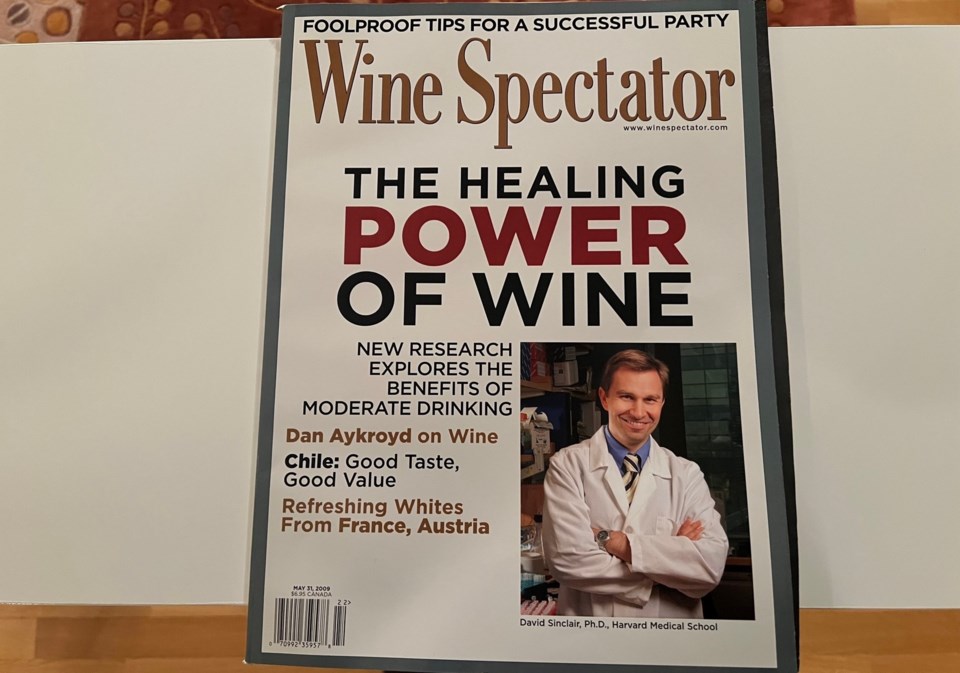As a wine drinker for many years, I was shocked to read what recent reports and studies had to say about the correlation between alcohol consumption and health.
Recently, the Canadian Centre on Substance Use and Addiction (CCSA) released new guidance on alcohol and health. This replaces the Canada Low Risk Drinking Guidelines which was released in 2011. In the 2011 report, CCSA recommended no more than 10 drinks a week for women and no more than 15 drinks a week for men. For wine, a drink is defined as a five-ounce glass of wine with not more than 12 per cent alcohol.
The new CCSA guidelines state that “research shows that no amount or kind of alcohol is good for your health”. CCSA further states that one to two drinks a week is a low risk for negative health consequences, three to six drinks a week increase your risk of developing several types of cancer, and seven or more drinks a week increases your risk of heart disease and stroke. But this is not the only recent study that comments on the effects of alcohol on health.
A recent article in the New York Times also stated that alcohol was known to be a direct cause of seven different cancers and recent research has found that even low levels of drinking slightly increase the risk of high blood pressure and heart disease. Even though a study cited in the New York Times article suggests that low-to-moderate alcohol use may mitigate the risk of atherosclerosis and inflammation in most cardiovascular diseases, any positive effects of drinking must be weighed against serious physiological effects. According to the New York Times article, these physiological effects may include damaging DNA, which could lead to cells growing out of control and cancer developing and oxidative stress, another form of DNA damage that is harmful to the cells that line blood vessels, resulting in stiffened arteries, higher blood pressure and coronary artery disease.
Personally, I had always assumed drinking in moderation had health benefits that far outweighed any negative effects. In fact, I recall reading many articles years ago that lauded the benefits of moderate wine drinking and suggested very few negative impacts.
One belief I had was that drinking wine in moderation, particularly red wine, has health benefits because wine dilates your blood vessels and resveratrol, which is contained in red wine, was supposed to be an anti-aging oxidant.
One of the difficulties in getting current information is that if you do a google search on this topic, many articles are written many years ago. From what I gather from my research, there is no clear-cut answer to whether drinking wine dilates or constricts your blood vessels because it depends on how much alcohol you consume and your age. Likewise, while it is true that red wine contains resveratrol, you can get the same benefit by just eating grapes (with their skins) or drinking grape juice.
What about the studies that show that people who drink moderately are healthier than those who do not drink? According to the New York Times article, the idea that a low dose of alcohol was healthy likely arose from the fact that people who drink small amounts tend to have other healthy habits, such as exercising, eating plenty of fruits and vegetables and not smoking. In addition, there is a belief that for some of these studies, people who did not drink alcohol were already not as healthy due to pre-existing conditions that didn’t allow them to drink.
So what does this all mean for a wine drinker? Well, you should not be drinking wine for its health benefits. You should be drinking wine (in moderation) because you enjoy it, it brings you happiness, it has social benefits and it can help you relax. We should also be more understanding of those who don’t drink alcohol as a preference or a health choice. Based on these studies, I know I will be more selective of when I choose to consume alcohol and savour the chances I have to drink with friends and family. Until next time, happy drinking!
Tony Kwan is the Richmond News' new columnist. Lawyer by day, food and wine lover by night, Kwan is an epicurean who writes about wine, food and enjoying all that life has to offer.



